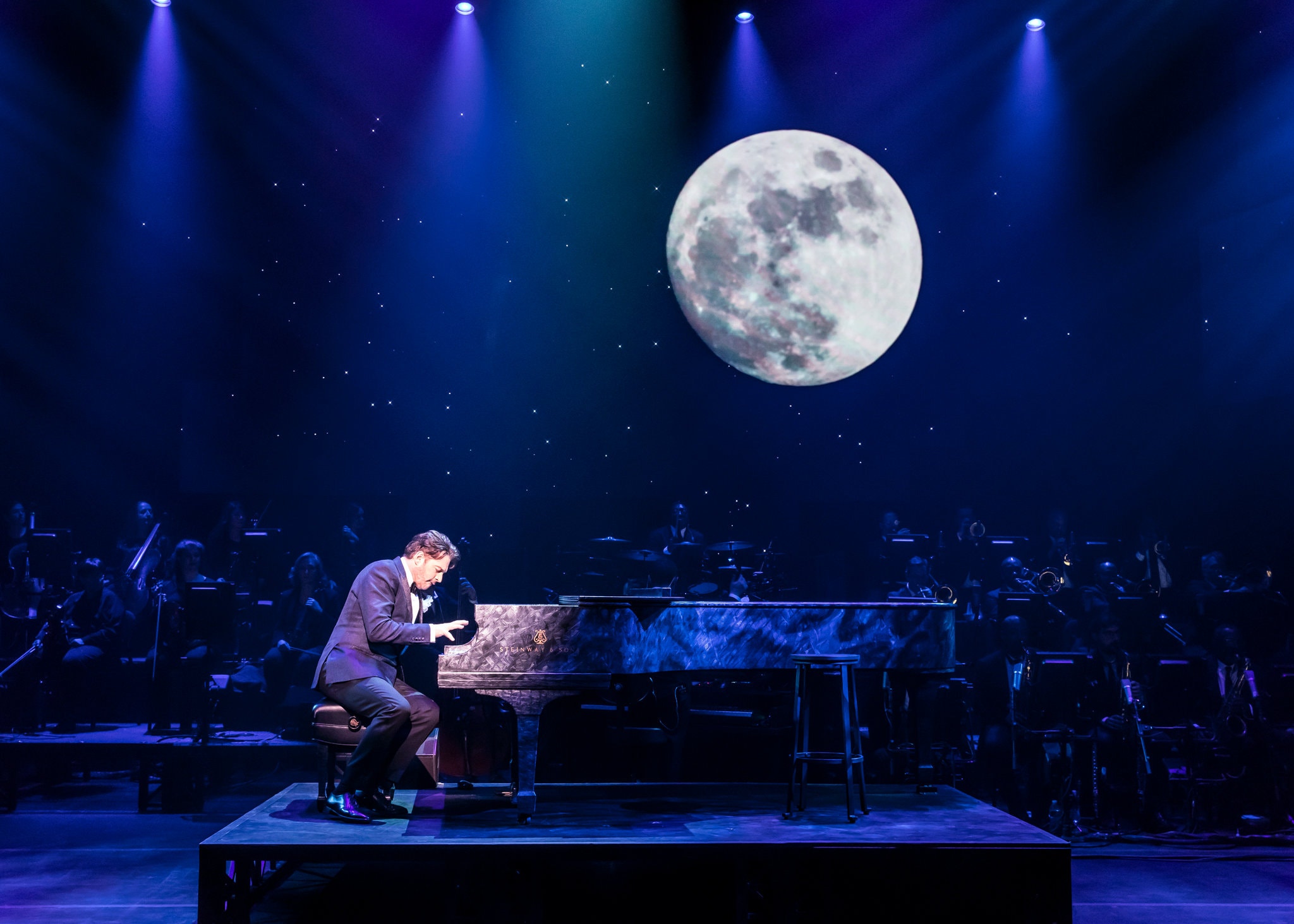
'Harry Connick, Jr. A Celebration of Cole Porter' Review
By
Harry Connick Jr. has got Cole Porter under his skin. And he wants the world to know it. Not only did he recently release an album of Porter songs called “True Love,” but he’s also written and directed a show dedicated to the iconic composer. Titled “Harry Connick, Jr.: A Celebration of Cole Porter,” the show, running at the Nederlander Theater, delivers on the promise Connick wrote in the program notes, “fasten your seat belts; it’s going to be a wild ride.”
Alluding to Bette Davis’s famous line from “All About Eve” is appropriate, given the show is a combination of cocktail hour chitchat, swoon-worthy music, over the top theatrical displays, and delicious camp.
Determined to enter the mind of the composer he admires so much, Connick opens the show with a short film in which he discovers a giant marble statue of Porter in the fields of Peru, Ind., where he was born in 1891. Like a character from a Dan Brown novel, Connick climbs the colossus and goes inside his head, hoping to find a way to grasp his genius.
From there, it is a wild ride indeed, as Connick performs some of Porter’s most beloved songs — “Anything Goes,” “In the Still of the Night,” and “I Love Paris,” among others — but also digs deep into tracks from Porter’s catalog.
He turns out to be obsessed with “High Society,” the 1956 film starring Bing Crosby, Frank Sinatra and Grace Kelly in what turned out to be her last screen performance before becoming Princess of Monaco.
When he sings “True Love,” the name of the sailboat in the film, Connick seems to be both in awe of its beauty, and grateful for the opportunity to sing it. Reduced to almost childlike wonder, he describes it as “one of the prettiest love songs ever written.”
And it’s that wonder that makes the show a success.
Connick’s devotion to Porter is palpable, and he wants to share his love with the audience. One of the show’s highlights features Connick sitting at his desk as he explains the processes of composing, arranging and orchestrating.
He picks “Night and Day,” and asks his orchestra to try it in different styles, including country, an experiment that shows not only the malleability of Porter’s work, but also the excellence of the orchestra, led by Andrew Fisher.
When Connick finally settles on jazz for the style and adds the appropriate instruments, it feels as if the song just burst into existence.
Beowulf Boritt and Alexis Distler designed the sets that go from a bar in New Orleans, to a Manhattan hotel room from which Connick sings “In the Still of the Night,” gazing at the moonlight provided by the lighting designer Ken Billington.
Although Connick shares some facts about Porter’s life, the show is never reduced to hagiography; instead it feels like spending an evening with a charming crooner who can’t wait to tell you all about the records he loves.
As a showman, Connick delivers the comedy both scripted and improvised. The night I attended he changed the lyrics of “Just One of Those Things,” to refer to late patrons who were being seated in the front row, mid-number. Always the gentleman, he approached one of the latecomers and kissed her hand.
Seamlessly moving from a glorious tap number with the dancer Aaron Burr to sitting at his piano to play the heck out of “You Do Something to Me,” he makes the show flow like the most sparkling of wines. It’s a testament to that voodoo that Harry Connick Jr. does so well.